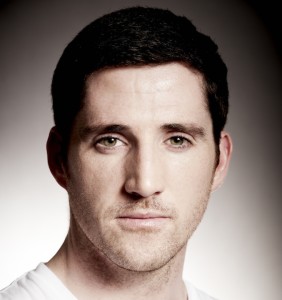
Marriage, sick pets, and awkward run-ins – for the last 10 years, columnist, author, and father of three Tim Dowling has been chronicling his dry observations of everyday life as a stay-at-home freelancer for the Guardian Weekend. X City Plus spoke to Tim about keeping in his wife and sons’ good books while writing about them for a living, their reactions, and what he’s learnt from it all.
Did you think that writing about personal experience would be something you’d end up doing? How did you start out?
When I first took over the column from Jon Ronson back in 2007, the editor of Weekend sent me an email saying, “I don’t want you to feel you have to write about your own life.” This sounded a bit like an instruction to me, but when the time came for the first column I couldn’t think of anything, so I wrote a piece about the dog and the cat following me around the house. The next week, I managed to write something vaguely topical, but whenever I panicked, I wrote about my personal life – it was all I had to fall back on.
About six months later, I came up with a column that I believed was a template for the future: intelligent, well-researched, sophisticated, and nothing to do with my domestic affairs. After I filed it, I got another email from the editor that said, “What happened to the funny wife?”
Your column is mostly about your family. Does that cause any arguments? How do you get around it?
It doesn’t anymore, but it has done. Early on, my wife got angry once or twice because I’d overstepped some mark I didn’t even see, mostly when she was worried I might get her into trouble at work. Obviously, I leave a lot of stuff out, and if a topic is particularly sensitive – something to do with school, say – I might show the column to my wife beforehand. But I like to think I’ve struck a balance. I always bear in mind that my wife is the one I’m trying to make laugh every week; if she doesn’t think it’s funny, then I’m doing it wrong.
Have you regretted anything you’ve written?
The short answer is yes. I think every journalist probably has. I remember once making a friend unhappy because I’d quoted him in a way that made him sound like an idiot, when he was actually being ironic. What I wrote wasn’t technically inaccurate, but I hadn’t been clear, because I hadn’t taken enough care.
I have a terrible faith in writing – I believe you can write about anything or anyone in a way that is true and fair and acceptable to all parties, as long as you take the time to find the right words. There are probably exceptions to that, but from my point of view, the biggest enemy is sloppiness.
In January, you wrote about your wife potentially leaving you – I wasn’t sure how serious it was. What sort of reactions did you get to that piece?
To me, that piece was about a type of dispute that I think is pretty typical among married couples. And I was trying to get across that feeling – however brief – of not quite knowing myself if it was serious. I was away when it came out, and a friend of mine made me read it to aloud to him off my phone while we were both sitting on a ski lift. He got it.
The reaction – if you mean the comments beneath the piece or the tweets I got – varied. Most people, I think, saw what I was driving at, but others seemed to believe I’d found a fun way to announce my impending divorce. There was some scorn – there’s always some scorn – a bit of genuine concern, and a certain amount of annoyance. That particular column had an intentionally open-ended quality that I know drives some readers mad. They want closure, week in, week out, but life just isn’t like that. To be honest, I get a stronger reaction when one of my pets gets sick.
Can writing about your life be therapeutic?
It is a form of thinking things through – you can’t write about something that happened to you accurately if you’re not prepared to examine your own motivations thoroughly. So it probably helps me understand what a jerk I am, but I don’t feel washed clean by airing my failings in public. They’re still there. Mostly, I’m just trying to be funny. That’s hard enough.
It feels like there are far more women writing about their personal lives and relationships than men. Why do you think that is?
I think these observational columns are essentially set in a domestic sphere – relationships, kids, meals, broken dishwashers – that was traditionally the province of women. The columns were written by women, for women. But us male freelance journalists, we’re all just sitting around the house all day, pretending to work. The domestic realm is our main – if not our only – area of expertise.
Are there benefits to being a columnist over other sorts of journalism?
I can see that people think it’s enviable, because I never have to go anywhere and I don’t have to know anything. The relentless deadline is both a blessing and a curse. It’s good to have steady work, but the threat of it also looms over you. Over the years, I’ve learned to limit the number of days I allow myself to freak out about next week’s column – otherwise it can ruin the whole week.


















